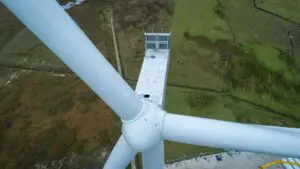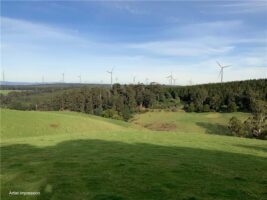Even before the dust settled on the outcome of Australia’s federal election on Saturday, environmental groups and renewable energy promoters were celebrating a significant victory – the departure of far right members of the Coalition and other conservatives who had stood in the way of climate policies and renewable energy.
According to activist group Get Up, eight of the 12 conservatives who lost their seats were “right-wing blockers” who held us back on key issues like climate action” since late 2009, when they first dumped Malcolm Turnbull from the Liberal leadership and replaced him with Tony Abbott.
Get Up named Abbott supporter Andre Nikolic, pro-nuclear advocate Senator Sean Edwards in South Australia, and the independent John Madigan, who chaired the absurd wind farm inquiry in the Senate, as being among its list.
Others noted likely losers were WA Senator Chris Back, Family First Senator Bob Day, and Liberal Democrat David Leyonhjelm, all of whom have campaigned against wind energy in particular, and climate policies in general.
But it’s not quite as easy as that. While some strong opponents of climate change action and renewable energy are clearly on their way out, others are on their way in.
The Liberal ranks, for instance, include two former policy makers from the Institute of Public Affairs, James Paterson and Tim Wilson, both of whom can be expected to join the right faction. Indeed, right wing commentators set on venting the downfall of Tony Abbott claim that more than half of the Liberal losers in this election were of the “soft centre” that supported Malcolm Turnbull.
And while Madigan, Day and possibly Leyonhjelm are gone, so too are those Senators who helped save the renewable energy target and supported ARENA – Glenn Lazarus, Ricky Muir and Dio Wang.
Senator Jacqui Lambie, who doesn’t think much of wind or solar but likes nuclear, is re-elected and may be joined by a running mate. So too is Pauline Hanson, whose One Nation Party’s policy platform includes having a royal commission into climate scientists.
As Hanson told Nine Network after the election, she has three major concerns – climate change hoaxes, immigration and Muslims. And on those issues she will be well supported by News Ltd columnists like Andrw Bolt, Miranda Devine, Rowan Dean, Tim Blair, Terry McCrann, and many in the Liberal Party.
Very good odds that we will see Galileo Movement’s Malcolm Roberts as a federal Senator. Climate alarmists beware https://t.co/SubMXZI9b3
— Galileo Movement (@GalileoMovement) July 3, 2016
And Hanson’s 9 per cent vote in Queensland means that her running partner, Malcolm Roberts, may also be elected. For those who don’t know him, Roberts is a former coal miner, and the chief spruiker for something called the Galileo Movement, a climate denying “think tank” that is often quoted by conservative columnists and politicians.
 In 2013, on his own conscious.com.au website, Roberts made a series of claims alleging widespread corruption by key Australian and United Nations science agencies. That’s why he wants a Royal Commission. The broadcaster Alan Jones remains its patron, according to its website.
In 2013, on his own conscious.com.au website, Roberts made a series of claims alleging widespread corruption by key Australian and United Nations science agencies. That’s why he wants a Royal Commission. The broadcaster Alan Jones remains its patron, according to its website.
One Nation may end up with four seats in the new Senate, according to the most dire predictions.
So, will the Far Right’s hold on the Senate be diminished after this election? Truth is, it’s too early to tell. Around one dozen seats remain in doubt and it is not yet clear who can form government, and under what conditions. The outcome of the Senate may not be known for a month.
It would be tempting to think that Turnbull, forced to deal with cross-benchers and independents, may be able to free himself of the “pledge” he made to the Far Right not to shift from the Abbott-era policies that destroyed the carbon price and knee-capped the renewable energy target.
That would particularly be the case if he was to strike a deal with the Nick Xenophon Team, which would likely be pushing for an accelerated shift to a form of emissions trading, but may remain quixotic about wind energy in renewable energy policies.
That may explain why the likes of Bolt, whose name once adorned the Galileo Movement’s supporters board, have called for Turnbull’s immediate resignation. The prospect of an “ABC-Left” prime minister dealing with the subtleties of minority government are all too much for some.
After all, it was the minority Labor government, forced to “co-habit” with the Greens, that resulted in the excellent Clean Energy Future package of carbon pricing, government agencies and ambitious renewable energy targets.
The five MPs likely to sit on the cross-bench all all pre-disposed to clean energy policies. These include Greens MP Adam Bandt, the Nick Xenophon Team’s Rebekah Sharkie, and independents Andrew Wilkie and Cathy McGowan.
Even Bob Katter, the eccentric farmer from western Queensland, lists two massive renewable energy projects at the top of his list of 20 key policy initiatives. “Whilst the two giant projects, the Kennedy Wind Farm and the Pentland Solar Bio-fuels plant, require little financial assistance, they do require a strong government commitment,” he says.
Indeed, one of the constants of this election campaign was that survey after survey underlined overwhelming public support for serious climate change action and ambitious renewable energy targets. The Climate Institute’s surveys found that two-thirds of Coalition and 81 per cent of Labor voters support these goals.
“There is a centre that can support credible climate action and there are extremes with Hanson and others that won’t,” TCI’s chief executive John Connor says. “Only the centre offers chances of political, investor and community stability.”
Connor notes that if the Coalition does manage to retain government, it will need to choose between the extremes and the centre on climate change and on other issues.
“It will also need to choose between scare campaigns and substance. It was bittersweet irony at best to hear the Coalition complain about scare campaigns given its colourful past of wrecking balls, cobra squeezes and distortions regarding the impacts of the carbon pricing mechanism.”
The Coalition’s official climate policy is for review of its current settings in 2017. Connor suggests that date should be brought forward, and the recommendations taken by its independent body, the Climate Change Authority, paid more heed.
Indeed, even in the midst of the Brexit chaos, the UK’s conservative government last week accepted the advice of its own independent Committee on Climate Change, and adopted an ambitious 2030 emissions reduction target.
“Perhaps surprisingly, climate action in the UK and in Australia could be a lifebuoy of stability amongst turbulent political waters,” Connor says.
And he noted this action was supported by big business, banks and investors. The same result, he suggests, would occur in Australia.
“But it will require a clear choice. A choice for inclusive processes, independent institutions and considered deliberation. Not a choice for extremism, scare campaigns or deliberate distortions.”








